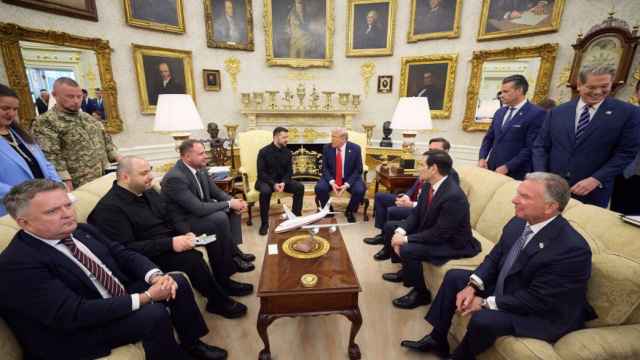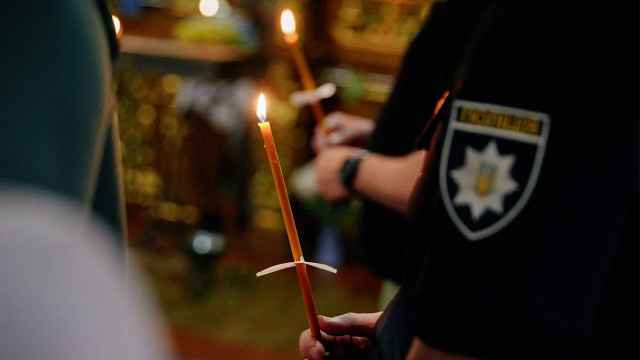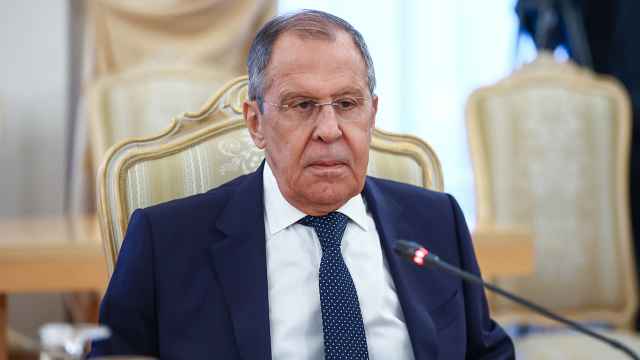Two fatal plane crashes within weeks have prompted President Dmitry Medvedev to put on his tough face and call for the grounding of the Soviet-made aircraft involved in the accidents.
But Medvedev neglected to say how the planes might be replaced.
Soviet aircraft — such as the An-24 turboprop and Tu-134 twin-engine jet — provide the only connection to the outside world for hundreds of settlements in Siberia — a region that the Kremlin wants to make sure remains loyal amid fears of weakening ties with the rest of Russia.
Chaos looms in the airline industry anyway because of earlier government orders that will require regional airlines to install expensive safety equipment on their aging aircraft that costs more than the planes themselves. The extra expense threatens to lead to the doubling of ticket prices, all but ensuring that residents are stranded in distant locales.
A Tu-134 operated by RusAir crashed and exploded in what witnesses described as a "pillar of fire" as it attempted to land in thick fog in Karelia's capital, Petrozavodsk, on a flight fr om Moscow on June 20. Five of the 52 people on the plane miraculously survived.
An Angara Airlines An-24 crash-landed in the Ob River on Monday after an engine caught fire during a flight from Tomsk to Surgut. Seven of the 37 people on board died.
Medvedev the Transportation Ministry in late June to "prepare for the accelerated decommissioning of Tu-134s" nationwide. Speaking after Monday's crash, he said the decommission plans should include An-24s as well.
But the Transportation Ministry had to implicitly defy him, Tuesday that only An-24s serving regularly scheduled flights would be grounded. With charter flights accounting for the bulk of air traffic east of the Urals, the impact of the ban will be significantly lessened.
The ministry did not pass up the chance to remind airlines this week that outmoded Soviet-era aircraft such as the Tu-134, An-24, Yak-40 and An-2, as well as Mi-8 helicopters, must be equipped by January with traffic alert and collision avoidance systems, known in the industry as TCAS, and ground proximity warning systems, or GPWS.
The ministry did not comment on the fact that the systems cost more than the planes themselves — a fact that Siberian-based airlines have long complained about.
Valery Fisher, chief executive of the Krasnoyarsk region-based Katekavia airline, said by telephone that he does not plan to install the systems due to the exorbitant costs.
Outfitting one An-24 would cost some 10 million rubles ($350,000), and Katekavia operates 14 An-24s and two Tu-134s, Fisher said in an interview. The total expenses of all Krasnoyarsk-based airlines would top 600 million rubles ($21 million) — a quarter of their annual turnover, he said.
"Where will we find so much money?" Fisher asked.
The answer is obvious, and Fisher admitted as much. "The airlines won't suffer as much as the passengers," he said. "We will have to cover the expenses through ticket prices."
For an airline to remain profitable, a ticket for a Krasnoyarsk-Igarka flight, now priced at 8,000 rubles ($280), will cost 18,000 rubles — "an unaffordable sum for the local population," Fisher said.
Even before the talk of price hikes, Prime Minister Vladimir Putin criticized the high cost of Siberian plane tickets during a trip through the region last year that was, incidentally, by car. No practical measures to reduce ticket prices followed the trip, which, analysts said at the time, was a reaction to slowly growing Siberian separatism.
Katekavia is among three Siberian airlines that appealed to Medvedev in an open letter last week for a state program to renovate the country's outmoded aviation fleet.
Obsolete aircraft handle more than 90 percent of flights in Siberia and the Far East, and the new safety regulations will "paralyze the transportation system" in a large swathe of the country where air travel is often the sole viable transportation option, the airlines said in the letter, which went unanswered.
Granted, the new rules are in line with international standards. And yet the new safety systems are no panacea — they did not prevent, for example, the Tu-154 of Polish President Lech Kaczynski from slamming into a Smolensk forest last year, killing all 96 people on board.
A possible solution could be patterned after the cash-for-clunkers program that helped thousands of car owners trade their obsolete vehicles for newer ones with government compensation, the airlines said in their letter.
But no such program is currently in the works, and neither the Kremlin nor the Transportation Ministry has commented on the proposal to start one. The ministry could not be reached for comment Wednesday and Thursday.
The An-24, which can seat 44 passengers, was produced from 1959 to 1979. About 100 of the planes still operate in Russia, mostly in Siberia and the Far East, where the rough climate and unpaved runways offer conditions few other aircraft are sturdy enough to handle.
Magomed Tolboyev, a veteran test pilot and honorary president of MAKS, Russia's top air show, said most Soviet-built aircraft should have been decommissioned long ago.
"Those planes should have been replaced some 10 years ago," Tolboyev said by phone. "They are outdated, and airlines are just exploiting them to the edge of their lim its."
But the problem is that there is nothing to replace some of the aircraft with, Tolboyev said. This goes in particular for the An-24, he said.
The planned successor, the An-140, was designed in the 1990s, but only four have been built since 2005. All are operated by the Yakutia airline.
"There are no other planes in Russia at the moment," Tolboyev said. The situation is similar with two other new models, the An-138 and An-148, which have been in development for years but are still not being mass-produced.
Sukhoi designed the SuperJet 100 to replace the Tu-134, but it has not gone into serial production yet. Only two planes have been delivered so far: to Armavia and Aeroflot earlier this year. But both airlines will have to return the aircraft to the plant for follow-up work after flying 2,000 hours, RBC reported Wednesday.
Meanwhile, Chinese plane makers are ready to fill the void with their MA60 — an updated version of An-24 that Fisher called "the perfect replacement." His Katekavia is currently holding negotiations to lease the MA60 for eight years at an interest rate of just 2 percent.
"I'm a patriot and I want to use Russian aircraft, but there are none," Fisher said.
But the MA60, produced since 2000, has not been certified in Russia, and it is not clear when it might be.
Despite being newer and better equipped than the An-24, the MA60 suffered its first fatal accident in May, when an Indonesian aircraft missed a runway and plunged into the sea, killing all 27 people on board. Indonesian authorities have provided no official explanation for the crash but speculated that bad weather caused pilot error.
Pilot error, not equipment malfunction, is also the cause of most plane-related incidents in Russia, including, tentatively, last month's Tu-134 crash.
There are a host of similar examples, including a Katekavia An-24 that crash-landed near Igarka last August, killing 11 of the 15 people on board. The weather was bad, but crash investigators have placed the bulk of the blame on the pilots, who they say were poorly trained.
The prevalence of pilot error highlights deep structural problems in the country's aviation, which is dominated by undertrained, underpaid and overworked staff and a lack of training facilities, industry insiders said at a round table held after the Tu-134 crash.
Veteran pilot Tolboyev agreed that things have changed since his own training in the 1970s. "I've been visiting pilot schools all around Russia," he said. "There are no training systems for crews, no training planes, nothing."
A Message from The Moscow Times:
Dear readers,
We are facing unprecedented challenges. Russia's Prosecutor General's Office has designated The Moscow Times as an "undesirable" organization, criminalizing our work and putting our staff at risk of prosecution. This follows our earlier unjust labeling as a "foreign agent."
These actions are direct attempts to silence independent journalism in Russia. The authorities claim our work "discredits the decisions of the Russian leadership." We see things differently: we strive to provide accurate, unbiased reporting on Russia.
We, the journalists of The Moscow Times, refuse to be silenced. But to continue our work, we need your help.
Your support, no matter how small, makes a world of difference. If you can, please support us monthly starting from just $2. It's quick to set up, and every contribution makes a significant impact.
By supporting The Moscow Times, you're defending open, independent journalism in the face of repression. Thank you for standing with us.
Remind me later.





